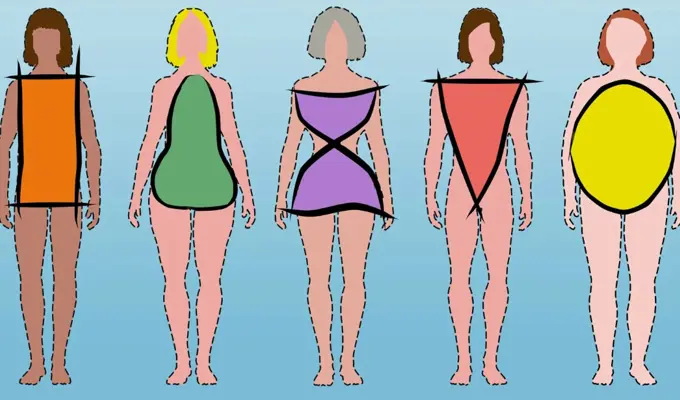If you're curious about whether your weight lands in the “just right” zone or tips the scale toward something less ideal, you’ve probably bumped into the term BMI.
That little acronym—short for Body Mass Index—packs a punch as a simple, single number that does the math on whether your weight aligns nicely with your height. Is it perfect?
Nope. Does it get the job done as a quick health check? Absolutely. Let’s explore what makes BMI tick, how to decode it, and why it’s worth paying attention to.
SIGN UP FOR YOUR FREE DAY PASS TODAY!
So, What Actually Is BMI?
At its core, body mass index (BMI) is an equation. Weigh yourself, measure your height, and—bam!—you’ve got your BMI number. You plug it into the categories—underweight, normal, overweight, and so on. Easy, right? Except it’s not that simple. Because every person’s body weight is different. Some of us pack muscle, some pack fat. And sometimes, that changes everything. Its categories give you a range, but your body might not fit into one neatly, not all the time.
Let’s Talk About Calculating BMI
So you want to know your BMI score? Fair enough. Weigh yourself, measure your height, and plug it into the equation. Done. Want quicker results? Use GymNation’s BMI calculator—it’s your shortcut. But remember, that’s just one part of the puzzle. What about muscle mass? What about the distribution of fat? If you’re carrying muscle, it could push your bmi result into the overweight category, despite being incredible health. Those things matter.
BMI Ranges: More Than Just Numbers
Let’s break this down. You’ve got a body mass index (BMI) value—now what? Well, if your BMI sits in the normal or healthy weight range (18.5 – 24.9), that’s the ideal weight and generally a sign of good health. But don’t get too comfortable. Body fat doesn’t always follow the rules. If you’re on the overweight range or beyond, it's time to ask some tough questions. Fat distribution—where that extra fat is sitting—is key. The overweight category isn’t just about fat; it’s about health risks. It's about how your extra fat is affecting your organs. This is how it's determined by the World Health Organization (WHO):
BMI RANGES
below 18.5: underweiobes
between 18.5 and 24.9: healthy weight
between 25 and 29.9: overweight
between 30 and 39.9: obese
over 40: severely obes
BMI values place you somewhere. But don't take that number too literally—your health could be telling a different story.
Why Does BMI Matter So Much?
It’s a go-to tool for assessing health risks. It’s fast, it’s universal, but also… limited. Still, there’s no denying its power. A body mass index can alert you to health problems like heart disease, high blood pressure, and type 2 diabetes. And if you’re dealing with excess weight, especially in your belly, the risk increases. But the real magic is in tracking those fluctuations over time. Weight loss, weight gain—BMI shows you the trends. The peaks and valleys. But it's not the whole picture. Nope, that’s coming next.
What’s a Healthy BMI Anyway?
A healthy BMI usually falls between 18.5 and 24.9. Sounds easy enough. But muscle can complicate things. Think about bodybuilders. They might have a higher BMI because muscle weighs more than fat, but their body fat? Low. On the flip side, if you’re severely obese, it’s a different ball game. Excess weight isn’t just about how you look—it’s about how it affects your blood vessels, your heart, your health risk. Don’t get caught up in the number alone. It’s a tool, not the answer.
Body Fat: The Real Culprit?
The thing is, BMI doesn’t tell you anything about fat distribution. Where you store your fat makes all the difference. Fat on your belly? That’s bad news. But the legs or arms? Not as much. The extra fat around your waist increases health risks like high blood pressure and heart disease. Pay attention to that. Calculating your BMI is only the start.
Weight-Related Health Risks
Here’s where things get serious. If your BMI pushes you into the overweight or obese range, watch out. You might be at risk for coronary artery disease and even certain cancers. Fat in the wrong places affects your blood vessels, leading to higher BMI and more health risks. But it’s not just about gaining fat. Losing weight, steadily, with physical activity, and muscle building will help lower your BMI score and keep you in the healthy weight range.
Pregnant Women and BMI
Pregnant women gain weight naturally. But it’s hard for BMI to separate that from the real issues. Consult your doctor for advice on how much weight you should gain safely.
Children and BMI
For your child's BMI, it’s not as simple as plugging in numbers. Kids have growing bodies, and BMI categories are a bit different. Their numbers rely on age, gender, and percentiles—so if you're worried about your child’s weight, check their BMI against the right charts.
When BMI Doesn’t Tell the Whole Story
BMI gives a snapshot, but don’t get caught up in the number. There’s more to health than a bmi calculation. Consider other factors: waist to height ratio, muscles, body fat percentage—these things matter, too. If your BMI says you're in the overweight or normal weight category but you feel sluggish, it might be time to check your body fat distribution.
BMI and Aging
BMI is far from a constant—it shifts, it morphs, it evolves. The older you get, the more your body becomes a strange blend of muscle loss and fat gain, even if that weight scale barely budges. It’s like a paradox, right? Your BMI number might stay put, but what’s really happening beneath the surface? The real story lies in muscle mass, bone density, and that sneaky waist-to-height ratio. These are the markers that tell the full tale of your body’s transformation over time. Because guess what? Extra fat around your stomach? It’s a health risk, even if the BMI number stays exactly the same. Don’t get fooled by just one metric—there’s so much more going on.
BMI and Diet
So, you’ve got your BMI. Great. But what does it mean for your plate? If you’re teetering on the edge of overweight, don’t just slash calories. That’s a rookie mistake. What you need isn’t restriction—it’s a balance. Healthy fats, lean proteins, and those complex carbs are the fuel for maintaining muscle while keeping fat in check. If you fall into the normal weight range, your job is different—maintain it. Fill your plate with whole grains, fruits, veggies, and sprinkle in some physical activity to make sure that muscle mass stays put. It’s not about drastic changes; it’s about keeping things steady and nourishing.
BMI in Athletes
Let’s talk athletes for a second. These high-performing humans often find themselves caught in an awkward spot. Body mass index doesn’t get them. It looks at the number on the scale and spits out a result that can make them appear overweight or even obese. Why? Because muscle weighs more than fat—and athletes have tons of it. Their body fat? Barely there. This is the perfect storm of why BMI, in isolation, can be a terrible measure of health. Instead, athletes should turn to more accurate markers like fat percentage and waist-to-height ratio. Those numbers? They tell the true story, the one that BMI just doesn’t get.
So, while BMI might make for a decent starting point, it’s the deeper measures—those nuanced, under-the-surface numbers—that actually reveal where you stand.
FAQs About BMI
What’s a normal BMI for most adults?
It’s between 18.5 and 24.9. Most adults will fall into this range, but remember: that’s not the whole story.
Can BMI predict health problems?
It can give you clues, but don’t rely on it alone. Combine it with other health assessments for a better picture.
Does BMI differ for men and women?
Technically, the formula is the same. But women tend to have more body fat, and it’s often distributed differently.
The Bigger Picture
BMI isn’t a magic wand. It’s not telling you everything about your health, but it’s telling you something. Pair it with other tools—body fat percentage, waist-to-height ratio—and you’ve got a fuller picture. Feel good? Move well? Sleep soundly? These are just as crucial as any number on a chart.
At GymNation, we get it—health isn’t one-size-fits-all. Our BMI calculator’s a helpful tool, but the real change happens when you decide to take charge. Weight loss, muscle gain, better habits—whatever your goal, it starts with knowing where you are.
So, ready to take that step? Click over to our calculator and let’s get started.
OTHER FITNESS CALCULATORS
Resources
Calculate Your Body Mass Index
BMI calculator female



















































































